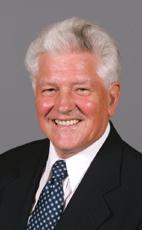Madam Speaker, the issue of redefining marriage is one of the most significant matters that this Parliament is and will be facing for some time. Its significance lies in the fact that the definition of marriage also defines a social institution that is one of the foundations of our society. It is the institution designed to achieve the conjugal goals of sex bridging, generativity, caregiving and connecting children to their mothers and fathers. The bill before us channels marriage away from these goals. Hence, the redefinition of the word, significant as it is in its own right as a means of clear communication, also contains within it the reorganization of our society.
Given the significance of the matter before us, it is incumbent upon us to apply maximum due diligence in the consideration of the issue at hand. The due diligence requires a careful study of the facts of the matter, seeking knowledge, understanding that knowledge and applying wisdom in deciding the best application of that knowledge.
Wisdom must be sought; it is not achieved automatically. It requires much thought and study and includes the integration of one's beliefs and values into the making of major decisions. For us lawmakers, it also requires the integration of the culture and beliefs of our society. As lawmakers for this land, any decision that involves the redefinition and reorganization of one of our society's fundamental institutions requires the knowledge, understanding and application of the primary source of wisdom for Canada.
What is the primary source of wisdom for Canada? No, it is not the Liberals. It is not the Conservatives. It is not any political organization or person.
In the search for the source of wisdom, I discovered that the Charter of Rights and Freedoms in the Canadian Constitution Act of 1982 provides the answer.
The charter begins:
Whereas Canada is founded upon the principles that recognize the supremacy of God and the rule of law.
Following these words, the charter specifies the “guarantee of rights and freedoms”.
Consistent with this provision in the Constitution, the Speaker or Deputy Speaker on every day that Parliament is in session reads at 11 a.m. on Mondays, 10 a.m. on Tuesdays, 2 p.m. on Wednesdays and 10 a.m. on Thursdays and Fridays these words:
Almighty God, we give thanks for the great blessings which have been bestowed on Canada and its citizens, including the gifts of freedom, opportunity and peace that we enjoy. We pray for our Sovereign, Queen Elizabeth, and the Governor General. Guide us in our deliberations as Members of Parliament, and strengthen us in our awareness of our duties and responsibilities as Members. Grant us wisdom, knowledge and understanding to preserve the blessings of this country for the benefit of all and to make good laws and wise decisions. Amen.
The prayer does not specify any particular law or decision that members are called upon to make. It recognizes that members need knowledge, understanding and wisdom from God. The prayer is not just a ritual. It has meaning, particularly because it is followed by a moment of silence for personal reflection.
I expressed my personal need for wisdom from God in ultimately deciding the substance of Bill C-38. For me, the particular significance of the redefinition of marriage and exercising due diligence is the need to try to recognize and evaluate the implications and possible consequences of such a redefinition.
There is little doubt that it would change the role and function of the institution of marriage in our society. It is not obvious what those changes would be. Among the matters to be considered are answers to questions like this.
First, how will Canadian society fare when it is no longer able to offer any special recognition in law or public to a form of life so central to human experience and, indeed, to human reproduction?
Second, will a transformation of marriage into a close relationship regime continue to erode its social significance for future generations?
Third, will marriage continue to decline as the centre of gravity for men and women seeking to form a stable life together?
Fourth, will these men and women have the social and cultural supports they need to help bring children into this world and to rear a family?
Fifth, will a reconstitution of marriage ratify a reproductive revolution that will kill any public commitment to maintaining relationships between children and their natural parents?
Sixth, will it set in motion new developments that will open the way for further deregulation of marriage and parenthood?
These are some of the questions that Daniel Cere, director, Institute for the Study of Marriage, Law and Culture in Montreal, asks.
There are those who argue, and in fact in the House, that such questions merely complicate an already thorny issue and should not be asked. To not at least debate and try to find answers to these questions and other questions that the redefinition of marriage evokes really means that debate on the matter should be neutered. Such an argument suggests that one should simply take a position without even considering possible consequences of the position taken either for oneself or for society. Such an argument is intellectually dishonest and at best a contradiction and at worst a denial of the very foundation on which the Constitution of Canada rests.
A law that has the potential of eroding one of the foundations of our society must be considered with the utmost gravity and demands that the best thinking of which we are capable coupled with the realization that the wisdom of God must be sought in humility and sincerity.
I believe that seeking wisdom from God with all our hearts will be rewarded. Let us all seek it.
I quote from Jeremiah 29:13: “...you will seek and find me when you seek me with all your heart”.

